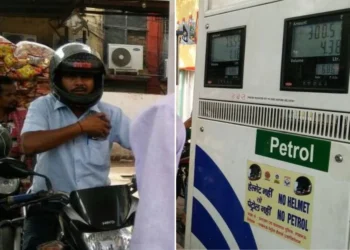New Delhi, August 23:
India’s top court just dropped a major ruling on stray dog management that’s got everyone talking. They changed up how they handle these animals nationwide under the Animal Birth Control (ABC) program. Here’s the deal. Strays that get sterilized, vaccinated, and dewormed can go back where they were picked up from. You know, their usual spots around neighborhoods or whatever.
Aggressive ones though. They’re staying off streets for good if showing rabies symptoms or acting dangerous. Judges said this new method needs nationwide application everywhere you know. No wiggle room. The whole thing balances public safety against animal welfare concerns in a way that’s not too heavy handed.
Court documents noted local authorities need clear protocols now. Rabid cases get immediate isolation while calm ones undergo vet checks before release. Took years of tug-of-war between animal activists and city planners arguing health risks versus humane treatment you see.
Different states had clashing policies causing chaos before this ruling. Now it supposedly creates one standard across cities and rural zones alike; whether that actually works when implemented is still up in the air, you know. People will be watching how it plays out on the ground over time.
Nationwide Guidelines for Stray Dogs and Humane Treatment
The Supreme Court laid down new rules for handling stray dogs across India. States and union territories now have to follow standardized procedures based on existing animal birth control guidelines. While stressing sterilization and vaccination as key population control methods, judges made it clear humane treatment remains non-negotiable.
Local civic bodies were told to team up with state governments and animal welfare groups for proper implementation. Any dog that gets sterilized or vaccinated gets released right back where it was picked up. This prevents turf wars between dog packs and keeps things stable in their territories.
Aggressive strays or ones showing rabies symptoms can’t roam public spaces anymore per the ruling. Those get moved to shelters, quarantine zones, or veterinary clinics for proper care and monitoring instead of being left out there risking public safety.
₹2,500 Crore Fund and Implementation Measures
Funding-wise, the central government allocated ₹2,500 crore nationwide for this push. Money gets funneled into building better sterilization centers and upgrading existing ones across municipalities. City veterinary facilities will see infrastructure improvements too under this plan.
Training programs for safe animal handling come out of these funds along with buying vaccines and medical supplies needed for surgeries and treatments. Public awareness campaigns about responsible pet ownership and proper stray dog feeding practices are part of the package too.
The court ordered strict auditing processes for how states spend this money requiring regular progress reports to prevent misuse or corruption in fund allocation and usage. Accountability measures get prioritized here big time according to the ruling documents we’ve seen so far anyway that’s how it breaks down from what they’re saying publicly now after Thursday’s decision came through late afternoon session ended early due to monsoon rains flooding parts of Delhi but that’s another story altogether not related obviously just context about why announcements happened when they did maybe who knows really but yeah there you have it basically everyone’s got new marching orders regarding street dogs nationwide starting immediately apparently.
Background, Challenges, and Public Reactions
Dealing with street dogs in India has been debated forever. There are something like 15-20 million strays roaming around here according to rough estimates. WHO numbers show India handles about 36 percent of global rabies deaths each year mostly from bites by these animals, meanwhile animal rights activists keep fighting against culling efforts pushing sterilization programs instead. Over decades now states have seen protests from both sides, residents worrying about safety clashes with activists pushing harder for animal protections.
What is ABC Programme?
The ABC program started back around the early 2000s and tried sterilizing and vaccinating dogs instead of killing them. The problem was uneven rollout across cities, tight budgets, and bad facilities made things messy. A recent Supreme Court decision aims at fixing this mess nationwide now.
Animal groups loved this decision calling it forward thinking. PFA said basically it gives animals cruelty-free lives while addressing what people worry about on streets. Not everyone’s celebrating though. Citizen groups point out safety concerns especially after high-profile attacks on kids and seniors in places like Kerala, UP, Maharashtra. Critics argue even sterilized dogs can bite so releasing them back might not solve everything. Local officials meanwhile talk practical stuff such as vet shortages, lack of clinics, and poor public awareness. Experts think success needs funding but also better coordination between departments.
Making this work requires massive sterilization drives, proper vaccination records, digital tracking of dogs through microchips, responsible community feeding, reporting unsterilized animals, building more veterinary hospitals and mobile units, and teaching people why abandoning pets on streets makes things worse. Courts want states sending progress reports soon to see how things actually work on ground.
At its core this new policy tries walking a tightrope between protecting animals and keeping people safe by making an ABC program mandatory, pumping over ₹2,500 crore into the system. Courts laid out clear steps. Now everyone’s watching how states handle the execution phase.












